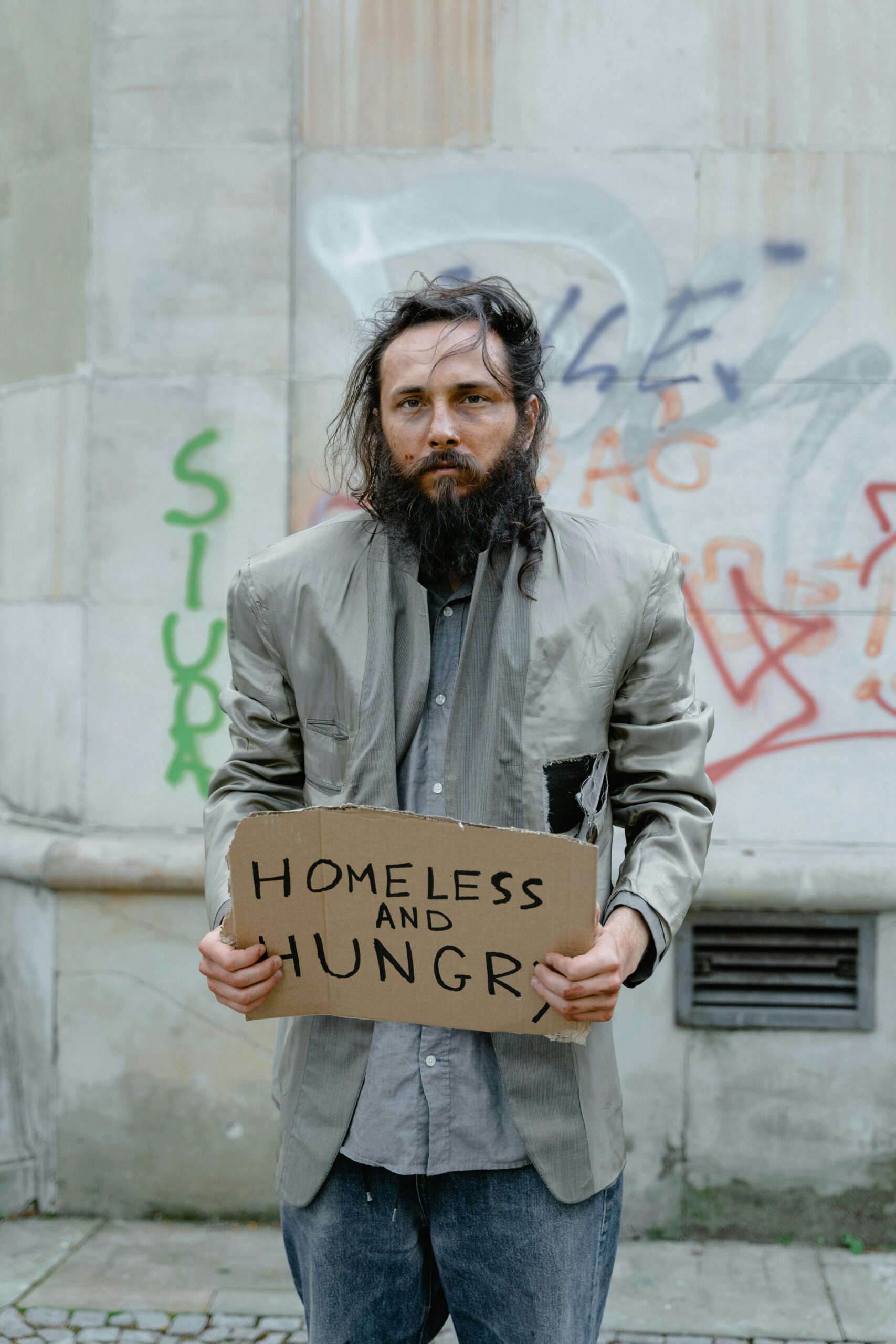Navigating the Florida homeless law can be daunting, especially for those facing the harsh realities of homelessness. Did you know that understanding your rights and the laws that govern homelessness in the Sunshine State is crucial for survival? In this comprehensive guide, we’ll explore the nuances of Florida’s homeless laws and what you need to know to protect yourself. Many people are unaware of the legal protections available to individuals experiencing homelessness, making it essential to stay informed. What are the key regulations that can support your journey toward stability? With a rise in discussions around homelessness in Florida, it’s vital to grasp the implications of local ordinances and state policies. This post will dive deep into the resources, rights, and potential legal challenges faced by homeless individuals in Florida. Are you curious about the best practices for navigating these laws? From understanding local shelters to knowing when and how to seek help, we’ve got you covered. So, let’s uncover the essential information you need to thrive in a complicated landscape of Florida’s homeless law.
Understanding Florida’s Homeless Law: Essential Rights and Protections You Must Know
Florida’s Homeless Law: Essential Rights and Protections You Must Know
In the sunny state of Florida, discussions around homelessness is often complicated. With a growing number of people experiencing homelessness, understanding the legal framework that protects these individuals has become increasingly important. The Florida homeless law provides essential rights and protections, but many people might not fully understand what this means for them. Here’s a closer look at what you need to know about Florida’s homeless law, including its historical context, essential rights, and practical examples of how these laws are enforced.
Historical Context of Florida’s Homeless Law
Florida has a long history of laws addressing homelessness, evolving over the years as societal views on poverty and housing challenges have shifted. The state has faced significant challenges, from economic downturns to natural disasters, which have contributed to rising rates of homelessness. Key legislative acts include:
- The Stewart B. McKinney Act (1987): This federal law aimed to provide funding and support for homeless individuals and families. Florida utilized this act to develop state-level programs.
- The Florida Statutes: Various sections within the Florida Statutes address homelessness, focusing on shelter access, discrimination, and public aid.
These laws have been designed to ensure that individuals experiencing homelessness have access to essential services, but understanding your specific rights can be challenging.
Essential Rights Under Florida Homeless Law
Individuals experiencing homelessness in Florida have rights that protect them from discrimination and provide access to services. Here are some key rights:
- Right to Shelter: Many local governments in Florida are required to provide access to emergency shelters. This means that during severe weather or health crises, individuals must be offered a safe place to stay.
- Protection from Discrimination: Florida law prohibits discrimination against individuals based on their housing status. This means landlords and service providers cannot deny access to services or housing solely because someone is homeless.
- Right to Public Assistance: Individuals who are homeless may be eligible for public assistance programs, including food stamps, medical assistance, and housing vouchers.
- Legal Protections Against Violence: Homeless individuals have the right to seek legal protection from violence or harassment, regardless of their living situation.
Understanding the Enforcement of These Laws
While laws exist to protect homeless individuals, enforcement can vary widely. Local governments and nonprofit organizations play critical roles in ensuring these rights are upheld. Some important points include:
- Local Government Initiatives: Many cities in Florida have implemented programs to assist the homeless, including outreach efforts, housing-first initiatives, and access to mental health services.
- Nonprofit Organizations: Various nonprofits work tirelessly to provide legal assistance, counseling, and resources for homeless individuals. They often help navigate the complex legal landscape to ensure individuals receive the protections they are entitled to.
- Community Resources: Local shelters, food banks, and health clinics often collaborate with legal services to provide comprehensive support.
Practical Examples of Florida’s Homeless Law in Action
To illustrate how these laws affect daily lives, consider the following scenarios:
- A homeless individual is denied entry into a shelter due to their past eviction record. Under Florida’s homeless law, they can file a complaint against the shelter for discrimination.
- A family living in their car during a hurricane is approached by local outreach workers. They have the right to emergency shelter, and local authorities are obligated to provide that space.
- A homeless person is harassed by police while trying to sleep in a public park. They can report this behavior as a violation of their rights, potentially leading to legal action.
Resources for Help and Support
If you or someone you know is experiencing homelessness, knowing where to turn for help is vital. Below is a list of resources that may assist:
- Florida Coalition for the Homeless: This organization provides advocacy and support for homeless individuals and families throughout the state.
- Local Continuum of Care Programs: Each region in Florida has its own Continuum of Care program that coordinates services for homeless individuals.
- Legal Aid Organizations: Various legal aid offices can help with understanding rights, navigating legal challenges, and providing representation.
Conclusion
Understanding Florida’s homeless law is crucial for navigating the complexities of homelessness and ensuring that individuals receive the protections and rights they deserve. With proper knowledge and access to resources, individuals can better advocate for themselves and find the support they need to survive and thrive in challenging circumstances. If you are facing homelessness or know someone who is, don’t hesitate to reach out to local organizations or legal professionals who can help you understand your rights under Florida law.
The Impact of Florida Homeless Law on Local Communities: 5 Key Insights
Florida has always been a state of sun, beaches, and vibrant communities, but lately, the homeless law has raised eyebrows and sparked debates. This legislation, aimed at managing the homeless population, impacts not only the individuals affected but also the wider communities they live in. Understanding these changes is crucial for residents and local businesses alike, so here we explore the impact of Florida’s homeless law and what it means for everyone.
The Essence of Florida Homeless Law
This law, which was enacted in recent years, aims to address the increasing visibility of homelessness in Florida’s urban areas. It primarily focuses on regulating the conduct of homeless individuals in public spaces, as well as establishing resources for them. Some of the core aspects includes:
- Prohibiting Camping: It restricts camping in certain public areas, which means many individuals may face fines or other legal repercussions.
- Mandatory Services: The law mandates that local governments provide specific services to help homeless individuals, like shelters or job placement programs.
- Increased Enforcement: Local police have more authority to enforce these regulations, which can lead to more arrests for minor infractions.
The Five Key Insights on Local Communities
Increased Tensions in Neighborhoods
As enforcement of the law becomes more common, tensions may arise between residents and those experiencing homelessness. People may feel unsafe or uncomfortable when they see homeless individuals in their neighborhoods. This has led to community meetings where residents voice their concerns, but it often results in heated debates.Economic Implications for Local Businesses
Businesses close to areas with a visible homeless population might see a decline in customers. Many locals may avoid areas that they associate with homelessness, which can hurt nearby shops and restaurants. Business owners are concerned about their bottom line and are often divided on how to address the issue.Shifts in Community Resources
The law requires local governments to allocate funds towards services for the homeless. This can be a double-edged sword, as communities might see more resources for shelters, but it can also mean a diversion of funds from other essential services like education or infrastructure.Public Perception of Homelessness
With the law in place, public attitudes toward homelessness can shift. While some may feel it is a step in the right direction, others might view it as criminalizing poverty. This can lead to a stigma that makes it harder for those in need to reintegrate into society.Legal Challenges and Community Responses
Some organizations are challenging the law in court, arguing it violates civil rights. These legal battles can create uncertainty in communities, as residents and officials await the outcomes. Additionally, grassroots movements may arise, pushing for more compassionate solutions rather than punitive measures.
Navigating the New Landscape: What You Need to Know
If you are a resident or business owner in Florida, understanding the implications of the homeless law is essential. Here are a few practical considerations:
- Stay Informed: Keep up with local news regarding the law and any changes. Community forums can be great places to learn and share insights.
- Engage with Local Organizations: Many charities and nonprofits are working directly with the homeless population. Connecting with these groups can provide valuable information and resources.
- Advocate for Solutions: Whether you support more funding for shelters or alternative approaches, being vocal about your views can help guide local policy.
Comparison: Florida Homeless Law vs. Other States
While Florida’s law aims to curb homelessness through stricter regulations, other states have adopted different approaches. Here’s a quick comparison:
| State | Approach | Outcome |
|---|---|---|
| Florida | Strict regulations and enforcement | Increased visibility of tensions |
| California | Focus on housing-first strategies | Mixed results, with some success in reducing homelessness |
| New York | Comprehensive services and support | Greater accessibility but ongoing challenges |
Final Thoughts
The Florida homeless law undoubtedly shapes the dynamics of local communities, sparking debates and leading to varied responses. Understanding its implications is key for anyone living or working in the area. As the situation continues to evolve, community engagement and awareness will play critical roles in finding sustainable solutions that balance the needs of residents and those experiencing homelessness. Keeping the conversation going is more important than ever in navigating this pressing issue.
Navigating Legal Challenges: How Florida Homeless Law Affects Your Survival Strategy
Navigating the complex world of legal challenges can be especially daunting when it comes to understanding laws that impact vulnerable communities. One such area of concern is the Florida homeless law, which significantly affects how individuals experiencing homelessness navigate their daily lives. It’s essential for both individuals facing homelessness and those who support them to be aware of these laws and their implications.
Historical Context of Florida Homeless Law
Florida has a long history of laws and policies addressing homelessness, which have evolved over the years. The state has enacted several ordinances aimed at managing public spaces where homeless individuals often seek shelter. These laws stem from a combination of societal attitudes towards homelessness and the need for public safety. Many laws have been criticized for criminalizing homelessness rather than addressing its root causes.
- Key Milestones:
- 1990s: Introduction of anti-camping ordinances.
- 2004: Emergence of “Housing First” initiatives aimed at providing permanent housing.
- 2019: The state passed laws that further criminalize certain behaviors often associated with homelessness.
Understanding Florida Homeless Law: What You Need to Know to Survive
Florida homeless law can be confusing and intimidating, but there are fundamental aspects that everyone should understand. The laws can vary significantly from one city to another, making local knowledge essential for survival.
Criminalization of Homelessness:
- Many cities have ordinances prohibiting camping in public spaces.
- Loitering laws can also be applied in ways that disproportionately affect homeless individuals.
Public Spaces and Rights:
- Certain public spaces may be off-limits for sleeping or resting.
- Police may enforce these laws, leading to potential fines or arrests.
Access to Services:
- Not all areas have adequate resources for homeless individuals, like shelters or food services.
- Many laws do not take into account the limited options available for those without homes.
Practical Survival Strategies in Light of Florida Homeless Law
Understanding the legal landscape is crucial for anyone facing homelessness in Florida. Here are some strategies that can help navigate these laws more effectively:
Know Your Rights:
- Educate yourself about local laws. Different cities have different regulations; knowing what is legal can help you avoid unnecessary confrontations with law enforcement.
Utilize Available Resources:
- Connect with local charities and organizations that provide legal aid to homeless individuals. They can offer support and guidance on navigating legal challenges.
Avoid Certain Areas:
- If possible, stay away from known enforcement areas where laws are strictly applied, such as certain parks or downtown districts.
Comparison of Different Florida Cities’ Approaches to Homelessness
Different cities in Florida have unique approaches to dealing with homelessness. Here’s a brief comparison:
Miami:
- Has several shelters but strict laws against camping in public spaces.
Orlando:
- More lenient with loitering laws but limited resources for long-term solutions.
Tampa:
- Enforces strict anti-camping laws but also has various outreach programs.
List of Resources Available for the Homeless in Florida
Here’s a list of resources that can help individuals navigate the challenges of homelessness in Florida:
Legal Aid Organizations:
- Florida Legal Services
- Legal Services of Greater Miami
Shelters:
- The Miami Rescue Mission
- The Orlando Union Rescue Mission
Food Banks:
- Feeding South Florida
- Second Harvest Food Bank of Central Florida
Conclusion
By familiarizing yourself with Florida homeless law, individuals can better navigate their circumstances and make informed choices. Their survival strategy is entwined with understanding their rights and resources available to them. While the laws may seem daunting, knowledge is empowering, and it can lead to better outcomes for those affected by homelessness. Being aware of the landscape can help individuals avoid legal pitfalls and access the support they need to survive.
Top 7 Resources for Homeless Individuals in Florida: Legal Support and Assistance
In Florida, the challenges faced by homeless individuals are numerous and complex. The state’s laws and available resources can be confusing, but knowing the right avenues for assistance can make a significant difference. This article outlines the top seven resources available for homeless individuals in Florida, focusing on legal support, and assistance, while also shedding light on the state’s homeless laws that are essential for survival.
1. Florida Legal Services
Florida Legal Services (FLS) is a vital organization that provides legal aid to low-income individuals, including those experiencing homelessness. They offer a variety of services that can help with issues like housing disputes, public benefits, and family law. The legal aid they provide might include:
- Representation in court
- Legal advice over the phone
- Help with housing issues
Their website is a great starting point for individuals seeking help, as it has information on local offices and how to apply for assistance.
2. The Homeless Coalition
The Florida Coalition for the Homeless serves as an umbrella organization that connects various homeless service providers across the state. They work tirelessly to advocate for the rights of homeless individuals and also provide resources like:
- Emergency shelters
- Transitional housing
- Food assistance programs
Through their network, individuals can find help quickly, which is crucial for those in dire need.
3. Local Nonprofits and Charities
Many local nonprofits and charities provide essential services to homeless individuals. Some notable organizations include:
- Salvation Army: Offers shelter, food, and rehabilitation services.
- United Way: Connects individuals with various resources, including housing and employment assistance.
- Catholic Charities: Provides emergency assistance, transitional housing, and case management.
These organizations often rely on donations and volunteers, so their capacity can vary.
4. Legal Aid Society of Palm Beach County
For those located in Palm Beach, the Legal Aid Society offers specific help tailored to the needs of homeless individuals. They provide legal assistance in various areas, such as:
- Landlord-tenant disputes
- Eviction defense
- Access to public benefits
Their commitment to serving the community makes them an indispensable resource.
5. Florida Homelessness Prevention Program
This program is designed to help individuals at risk of homelessness. It provides financial assistance for rent, utilities, and other housing-related expenses. Key features include:
- Short-term financial aid
- Support services to help individuals maintain housing
- Access to case management
Knowing about this program can help prevent homelessness before it starts.
6. The Department of Children and Families (DCF)
The DCF plays a crucial role in addressing homelessness in Florida. They provide various assistance programs, including:
- Temporary cash assistance
- Food assistance through SNAP
- Access to mental health and substance abuse services
Understanding how to navigate DCF can be beneficial for individuals seeking help.
7. Local Government Programs
Many counties and cities have their own programs aimed at assisting homeless individuals. For example, Miami-Dade County has a comprehensive plan to address homelessness that includes:
- Outreach teams to connect with homeless individuals
- Permanent supportive housing options
- Financial assistance for those in need
Each local government may have different resources, so it’s essential to check what is available in your area.
Florida Homeless Law: What You Need to Know
Understanding Florida’s homeless laws can be a game changer for those experiencing homelessness. Here are some critical points to consider:
- Right to Shelter: Florida law provides a right to shelter in certain conditions, particularly during severe weather events.
- Eviction Protections: Individuals facing eviction have rights that can protect them from unlawful removal.
- Access to Public Spaces: Homeless individuals have the right to use public spaces, although local ordinances may impose certain restrictions.
It’s also important to be aware of the resources available for legal assistance regarding these laws. Many organizations listed above can help interpret these laws and provide guidance.
Navigating homelessness in Florida can be overwhelming, but knowing where to turn for help can alleviate some of the burdens. The resources mentioned above are just a starting point for individuals seeking legal support and assistance. Florida’s laws surrounding homelessness are complex but understanding them is crucial for survival. With the right support, individuals can find a pathway to stability and security.
What You Need to Know About Florida’s Homeless Law: 10 Common Myths Debunked
Florida has seen a lot of changes in laws around homelessness in the past few years. Many folks are confused about what the law really means for the homeless and the general public. Understanding Florida’s Homeless Law is crucial for those living or working in the state. There’s a lot of misinformation floating around, so it’s time to clear the air. Here’s a look at 10 common myths that need busting, along with practical info on how to navigate these laws.
Myth 1: The Law Criminalizes Homelessness
Many people think that Florida’s Homeless Law criminalizes being homeless. That’s totally not true. The law is actually aimed at addressing the underlying issues that contribute to homelessness, like lack of access to mental health services or affordable housing. It’s more about providing resources rather than punishment.
Myth 2: You Can’t Help the Homeless Without Getting Arrested
Some believe that giving money or food to homeless individuals can lead to legal troubles. While there are regulations about where and how you can provide aid, it’s generally safe to help those in need. Just make sure you’re aware of local ordinances when doing so.
Myth 3: Homeless People Can’t Sit or Sleep in Public Spaces
The law does not outright ban sitting or sleeping in public places. However, local governments can create ordinances that regulate these behaviors in specific areas. So, it’s important to know where you are. Some parks or public spaces may have restrictions.
Myth 4: All Homeless People Are Substance Abusers
This stereotype is not true. While some individuals might struggle with addiction, many others are just facing tough economic times, job loss, or health problems. A diverse range of circumstances lead to homelessness, and it’s not fair to generalize.
Myth 5: The Law Makes It Harder to Access Services
Actually, the law aims to improve access to essential services for homeless individuals. There are programs intended to help those in need obtain housing, healthcare, and job training. It’s just a matter of knowing where to look.
Understanding Florida Homeless Law: Key Points
Goal of the Law: The primary objective is to address the root causes of homelessness rather than punish those who are without shelter.
Local Ordinances: Each city in Florida can enact its own regulations based on community needs, which may affect how laws are applied.
Support Services: Different organizations and state-funded programs exist to help homeless individuals find housing and employment.
Compassionate Engagement: Community members are encouraged to engage compassionately with homeless individuals, providing support without fear of legal repercussions.
Myth 6: All Shelters Are Unsafe
While some shelters may have safety concerns, many are well-run and provide a safe environment. It’s always wise to check reviews or ask for recommendations before heading to a shelter.
Myth 7: Homelessness is a Choice
This is a common misconception. Many factors, including economic downturns, medical emergencies, and family crises contribute to homelessness. Forcing someone into a box by labeling it as a choice is often simplistic and inaccurate.
Common Questions About Florida’s Homeless Law
What should I do if I see someone experiencing homelessness?
- Engage compassionately, offer resources, or contact local shelters. Just avoid giving cash if you’re unsure how it may be used.
Are there penalties for feeding homeless people?
- Not typically, but some cities may have rules about where this can happen. Always check local laws.
How can I find resources for homeless assistance?
- Websites like the Florida Coalition for the Homeless provide excellent resources and contacts.
Myth 8: Homelessness is a New Problem in Florida
Not at all! The issue has a long history in Florida, with economic cycles causing rises and falls in homelessness. It’s been influenced by factors like hurricanes, economic recessions, and an ever-growing population.
Myth 9: The Law Only Applies to Certain Areas
This misconception suggests that the law only affects urban areas. In reality, homelessness is a statewide issue, and the laws apply across Florida, regardless of the city’s size.
Myth 10: You Can’t Advocate for Change
Many folks feel they can’t advocate for better homeless services or laws. However, community involvement and advocacy can lead to real change. Join local organizations that focus on homelessness, volunteer, or even write to lawmakers.
If you’re in Florida and dealing with homelessness—whether personally or through advocacy—understanding the laws and dispelling these myths can make a real difference. It’s about building a better community and supporting those in need. So, get informed, engage compassionately, and help make a change.
Conclusion
In conclusion, understanding Florida’s homeless laws is crucial for fostering a compassionate and effective response to homelessness in the state. We explored the legal frameworks surrounding homelessness, including the rights of individuals experiencing homelessness, the limitations on anti-camping ordinances, and the importance of providing adequate support services. Additionally, the role of local governments and non-profit organizations in creating sustainable solutions cannot be overstated. As we move forward, it is essential for communities, policymakers, and citizens to advocate for humane treatment and comprehensive policies that address the root causes of homelessness. By promoting awareness and supporting initiatives aimed at providing shelter, healthcare, and job training, we can contribute to a more inclusive society. Let us work together to ensure that every Floridian has access to the resources they need to thrive, and challenge the stigmas that perpetuate homelessness in our communities.



